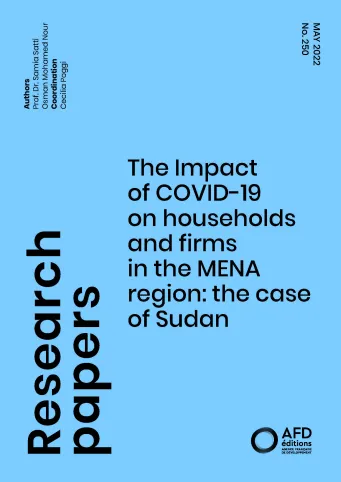Share the page
The Impact of COVID-19 on households and firms in the MENA region: the case of Sudan
Published on

This paper aims to discuss the status of households and firms during the COVID-19 pandemic in Sudan as a case study of the MENA countries. It is based on new primary data obtained from ERF COVID MENA Monitor Household Survey (2021) and the World Bank and Sudan Central Bureau of Statistic High Frequency Survey on COVID-19 (2020). During the COVID-19 pandemic (June–July 2020) the loss of jobs for the majority and nearly two thirds of households, unemployment and changing jobs was because of business or government closures due to coronavirus legal restrictions. The increase in temporary or permanent layoff/suspension of workers, reduced hours, reduced wages, delays in wage payment and limited provision of social protection/insurance between April and August 2021. A careful interpretation of our results could be considered as during COVID-19 pandemic Sudan not only suffered from COVID-19 pandemic but also simultaneously suffered from a critical economic crisis, economic instability and political instability that started even before the COVID-19 pandemic. The main recommendation of this paper is to increase the government support to manage COVID-19 economic and social impacts on workers.
Useful Information
-
Authors
-
Samia Satti, Osman Mohamed Nour
-
Edition
-
250
-
Number of pages
-
60
-
ISSN
-
2492-2846
-
eISSN
-
2492-2846
-
Collection
-
Research Papers
